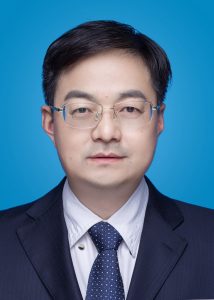International Symposium on
Computational Intelligence and Cybernetics
December 19, 2020
Huazhong University of Science and Technology, China
Free online symposium:
Zoom: https://us02web.zoom.us/j/7615650214?pwd=S1cvQ3NIakxzZ2ZkNXhwRkpZZjZtZz09
Meeting ID: 761 565 0214
Passcode: 201219
All are welcome!
Honorary Chairs:
Professor Youlun Xiong
Members, Chinese Academy of Sciences
School of Mechanical Science and Engineering
Huazhong University of Science and Technology
Professor Zhigang Zeng
Fellow, IEEE
Dean, School of Artificial Intelligence and Automation
Huazhong University of Science and Technology
Executive Chairs:
Professor Hai-Tao Zhang
Deputy Dean, School of Artificial Intelligence and Automation
Huazhong University of Science and Technology
Professor Dongrui Wu
Deputy Director, Ministry of Education Key Laboratory on Image Information Processing and Intelligent Control
Huazhong University of Science and Technology
Agenda:
Details:

Professor Witold Pedrycz
Title: Interpretability in System Modeling: A Study in Granular Rule-Based Computing
Time: 09:15-09:45
Host: Dongrui Wu
Abstract: The facets of interpretability and explainability have become more visible on the current agenda of system modeling and Artificial Intelligence. They are especially timely in light of the increasing complexity of systems one has to cope with. Interestingly, the investigations along this line have been intensively pursued in fuzzy rule-based models for some time.
In this presentation, we offer a systematic discussion on augmenting the interpretability of multivariable functional granular (fuzzy, in particular) rule-based models whose rules come in the generic form “if x is Gi then y =fi(x,ai)” where Gi is an information granule expressed in the input space and fi serves as a local function from Rn to R.
The interpretability mechanisms are focused on the elevation of interpretability of the conditions and conclusions of the rules. It is presented that augmenting interpretability of conditions is achieved by (i) decomposing a multivariable information granule into its one-dimensional components, (ii) their symbolic characterization, and (iii) linguistic approximation, which gives rise to the conditions in the form t(xjs is A), and t(essential xjs is A) where A is some reference information granule and t stands for a linguistic quantifier. We demonstrate that a formation of a granular conclusion Bi producing relational rules “if x is Gi then y is Bi” promotes an elevated interpretability level of the rules.
A hierarchy of interpretation mechanisms is systematically established. We also discuss how this increased interpretability associates with the reduced accuracy of the rules and how sound trade-offs between these features are formed.
Bio: Witold Pedrycz (IEEE Fellow, 1998) is Professor and Canada Research Chair (CRC) in Computational Intelligence in the Department of Electrical and Computer Engineering, University of Alberta, Edmonton, Canada. He is also with the Systems Research Institute of the Polish Academy of Sciences, Warsaw, Poland. In 2009 Dr. Pedrycz was elected a foreign member of the Polish Academy of Sciences. In 2012 he was elected a Fellow of the Royal Society of Canada. In 2007 he received a prestigious Norbert Wiener award from the IEEE Systems, Man, and Cybernetics Society. He is a recipient of the IEEE Canada Computer Engineering Medal, a Cajastur Prize for Soft Computing from the European Centre for Soft Computing, a Killam Prize, a Fuzzy Pioneer Award from the IEEE Computational Intelligence Society, and 2019 Meritorious Service Award from the IEEE Systems Man and Cybernetics Society.
His main research directions involve Computational Intelligence, fuzzy modeling and Granular Computing, knowledge discovery and data science, pattern recognition, data science, knowledge-based neural networks, and control engineering. He has published papers in these areas. He is also an author of 21 research monographs and edited volumes covering various aspects of Computational Intelligence, data mining, and Software Engineering.
Dr. Pedrycz is vigorously involved in editorial activities. He is an Editor-in-Chief of Information Sciences, Editor-in-Chief of WIREs Data Mining and Knowledge Discovery (Wiley), and Co-editor-in-Chief of Int. J. of Granular Computing (Springer) and J. of Data Information and Management (Springer). He serves on an Advisory Board of IEEE Transactions on Fuzzy Systems and is a member of a number of editorial boards of international journals.

Professor Gary Yen
Title: Knee-Driven Optimization And Decision-Making in Evolutionary Multiobjective Optimization
Time: 9:45-10:15
Host: Dongrui Wu
Abstract: Evolutionary computation is a branch of studying biologically motivated computational paradigms which exert novel ideas and inspiration from natural evolution and adaptation. The applications of population-based meta-heuristics in solving multiobjective optimization problems have been receiving a growing attention. To search for a family of Pareto optimal solutions based on nature-inspiring metaphors, Evolutionary Multiobjective Optimization Algorithms have been successfully exploited to solve optimization problems in which the fitness measures and even constraints are uncertain and changed over time. When encounter optimization problems with many objectives, nearly all designs perform poorly because of loss of selection pressure in fitness evaluation solely based upon Pareto optimality principle. During the last years, evolutionary algorithms have been adapted to address these challenges of curse of dimensionality. In addition, a minimum Manhattan distance approach to multiple criteria decision making in many-objective optimization problems was proposed. This procedure is equivalent to the knee selection in operation research. Given such a directive, knee-based evolutionary algorithms have also been exploited to address multimodal optimization, dynamic optimization, constraint optimization, robust optimization, and their applications in medical screening, portfolio management, and most recently the design of convolutional neural networks autonomously. In this talk, focal research on evolutionary neural architecture search will be detailed pertaining to the interest of audience.
Bio:Gary G. Yen received the Ph.D. degree in electrical and computer engineering from the University of Notre Dame in 1992. He is currently a Regents Professor in the School of Electrical and Computer Engineering, Oklahoma State University. His research interest includes intelligent control, computational intelligence, evolutionary multiobjective optimization, conditional health monitoring, signal processing and their industrial/defense applications. He has published over 175 journal papers, mostly in IEEE Transactions.
Gary was an associate editor of the IEEE Transactions on Neural Networks and IEEE Control Systems Magazine during 1994-1999, and of the IEEE Transactions on Control Systems Technology, IEEE Transactions on Systems, Man and Cybernetics (Parts A and B) and IFAC Journal on Automatica and Mechatronics during 2000-2010. He is currently serving as an associate editor for the IEEE Transactions on Evolutionary Computation (Impact Factor 11.169), IEEE Transactions on Cybernetics (Impact Factor 11.079), IEEE Transactions on Emerging Topics on Computational Intelligence, and most recently IEEE Transactions on Artificial Intelligence. Gary served as Vice President for the Technical Activities, IEEE Computational Intelligence Society in 2004-2005 and was the founding editor-in-chief of the IEEE Computational Intelligence Magazine, 2006-2009. He was elected to serve as the President of the IEEE Computational Intelligence Society in 2010-2011 and is elected as a Distinguished Lecturer for the term 2012-2014, 2016-2018, and 2021-2023. He received Regents Distinguished Research Award from OSU in 2009, 2011 Andrew P Sage Best Transactions Paper award from IEEE Systems, Man and Cybernetics Society, 2013 Meritorious Service award from IEEE Computational Intelligence Society and 2014 Lockheed Martin Aeronautics Excellence Teaching award. He is a Fellow of IEEE and IET.
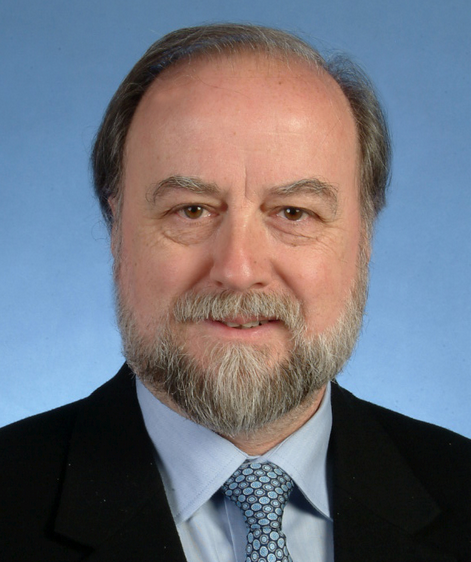
Dr. Piero Bonissone
Title: PHM Analytics for Industrial AI
Time: 10:15-10:45
Host: Dongrui Wu
Abstract: In the past, analytic model creation was an artisanal process, as models were handcrafted by experienced, knowledgeable model-builders. More recently, the use of meta-heuristics, such as evolutionary algorithms, has provided us with limited levels of automation in model building and maintenance. In the short future, we expect data-driven analytic models to become a commodity. We envision having access to a large number of data-driven models, obtained by a combination of crowdsourcing, cloud-based evolutionary algorithms, outsourcing, in-house development, and legacy models. In this context, the critical issue will be model ensemble selection and fusion, rather than model generation.
First, we will review the application of data-driven analytic models to assets Prognostics and Health Maintenance (PHM) such as aircraft engines, medical imaging devices, and locomotives. We will cover a few case studies on anomaly detection, diagnosis, prediction, and optimization.
Then we will describe the evolution of analytic models with the advent of cloud computing, and propose the use of customized model ensembles on demand, inspired by Lazy Learning. This approach is agnostic with respect to the origin of the models, making it scalable and suitable for a variety of applications. We successfully tested this approach in a regression problem for a power plant management application, using two different sources of models: bootstrapped neural networks, and GP-created symbolic regression models evolved in the cloud. We will present results on the fusion of models for FlyQuest, a GE-sponsored Kaggle competition, in which we crowdsourced the generation of models predicting the estimated runway and gateway arrival (ERA, EGA) over a month of US flights.
Finally, we will explore research trends, challenges and opportunities for Machine Learning techniques in this emerging context of big data and cloud computing.
Bio:Dr. Bonissone is an independent consultant specialized in the use of analytics for Industrial AI applications. He provides consulting services in machine learning (ML) analytic applications, covering project definition and risk abatement, project evaluation, transition from development to deployment, and model maintenance.
He has been an Advanced Analytics Advisor for Parkland. Stanley Black Decker, GE Oil & Gas (prior to their integration with Baker Hughes), and Schlumberger, where he played a key role in Digital Transformation initiatives, such as part forecasting, market intelligence, PHM projects related to equipment reliability, etc.
A former Chief Scientist at GE Global Research (GE GR), where he retired in 2014 after 34 years of service, Dr. Bonissone has been a pioneer in the field of analytics, machine learning, fuzzy logic, AI, and soft computing applications. Over the last decade of his tenure at GE GR, he developed multi-criteria decision making systems to support PHM applications (prescriptive models), ensemble learning to reduce the variance of predictive models, and model lifecycle automation to create, deploy, and maintain analytic models, providing customized performance while adapting to avoid obsolescence.
He is a Life Fellow of the IEEE, a Fellow of the Association for the Advancement of Artificial Intelligence (AAAI), the International Fuzzy Systems Association (IFSA), and a Coolidge Fellow of GE Global Research. He received the 2012 Fuzzy Systems Pioneer Award from the IEEE CIS. From 2010 to 2015, he chaired the Scientific Committee of the European Centre for Soft Computing. In 2008 he received the II Cajastur International Prize for Soft Computing from the European Centre of Soft Computing. In 2005 he received the Meritorious Service Award from the IEEE CIS.
He served as Editor-in-Chief of the International Journal of Approximate Reasoning for 13 years. He is in the editorial board of five technical journals and is Editor at Large of the IEEE Computational Intelligence Magazine. He co-edited six books and has 150+ publications in refereed journals, book chapters, and conference proceedings, with 11,000+ citations, an H-Index of 55 and an i10-index of 166 (by Google Scholar). He received 74 patents issued by the US Patent Office. From 1982 until 2005 he has been an Adjunct Professor at Rensselaer Polytechnic Institute, in Troy NY, where he supervised 5 PhD theses and 34 Master theses. He co-chaired 12 scientific conferences focused on Multi-Criteria Decision-Making, Fuzzy sets, Diagnostics, Prognostics, and Uncertainty Management in AI. He has been a member of the IEEE Fellow Committee in 2007-09, 2012-14, and 2016-19. Currently he is the Vice-Chair of the IEEE Fellows Committee. In 2002, while serving as President of the IEEE Neural Networks Society (now CIS), he was a member of the IEEE Technical Activity Board. He has been an Executive Committee member of NNC/NNS/CIS society in 1993-2012 and 2016-18, and an IEEE CIS Distinguished Lecturer in 2004-14, and in 2017-19.
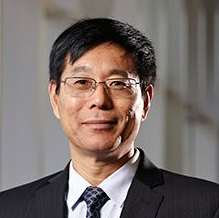
Professor Qing-Long Han
Title: Multi-Agent Systems Based Distributed Control, Optimization and Energy Management in Smart Grids
Time: 10:45-11:15
Host: Hai-Tao Zhang
Abstract: With the widespread integration of renewable distributed energy sources such as wind generation, photovoltaic and solar panels, a traditional electrical network has been experiencing a huge revolution towards a smart grid in various terms of generation, transmission, distribution and usage, and so on. Such a revolution poses new theoretical and technical challenges in operation and management of smart grids. To address these challenges, a multi-agent system based strategy is developed to address control and optimization issues in smart grids, showcasing its strong ability in improving efficiency, reliability and scalability. In this talk, some backgrounds on smart grids from the perspective of multi-agent systems are introduced. Second, a distributed secondary control scheme with an event-triggered communication mechanism is presented to ensure frequency regulation and active power sharing of AC islanded microgrids while significantly reducing the utilization of communication resources. Third, a multi-objective distributed optimization method is provided to address current sharing and voltage regulation in DC microgrids. Furthermore, a distributed energy management issue of smart grids maximizing the total social welfare that balances generation-side expanses, user-side payments, and transmission line costs is addressed. Finally, some challenging issues are discussed for future investigation.
Bio: Distinguished Professor Qing-Long Han is Swinburne’s Pro Vice-Chancellor (Research Quality). He is a Fellow of The Institute of Electrical and Electronic Engineers and a Fellow of The Institution of Engineers Australia. He has served as an AdCom Member of IEEE Industrial Electronics Society (IES) and a Member of IEEE IES Fellows Committee.
Professor Han is a Highly Cited Researcher by Clarivate Analytics (Thomson Reuters) in 2014-2016, 2018-2020. He is one of Australia’s Top 5 Lifetime Achievers (Research Superstars) in Engineering and Computer Science in The Australian’s Research Magazine in 2019 and 2020. He is ranked No. 320 in the world ranking in the 6th Edition of the 2020 Ranking of Top 1000 Scientists in the field of Computer Science and Electronics and No. 5 in Australia in the field of Computer Science and Electronics according to Guide2Research.
Professor Han received The 2020 IEEE Systems, Man, and Cybernetics (SMC) Society Andrew P. Sage Best Transactions Paper Award (IEEE Transactions on Systems, Man, and Cybernetics: Systems), The 2020 IEEE Industrial Electronics Society IEEE Transactions on Industrial Informatics Best Paper Award, and The 2019 IEEE Systems, Man, and Cybernetics (SMC) Society Andrew P. Sage Best Transactions Paper Award (IEEE Transactions on Cybernetics).
Professor Han has served as an Associate Editor for 12 international journals including IEEE Transactions on Industrial Electronics, IEEE Transactions on Industrial Informatics, IEEE Industrial Electronics Magazine, IEEE Transactions on Cybernetics, Control Engineering Practice, Information Sciences, and a Guest Editor for 13 Special Issues.
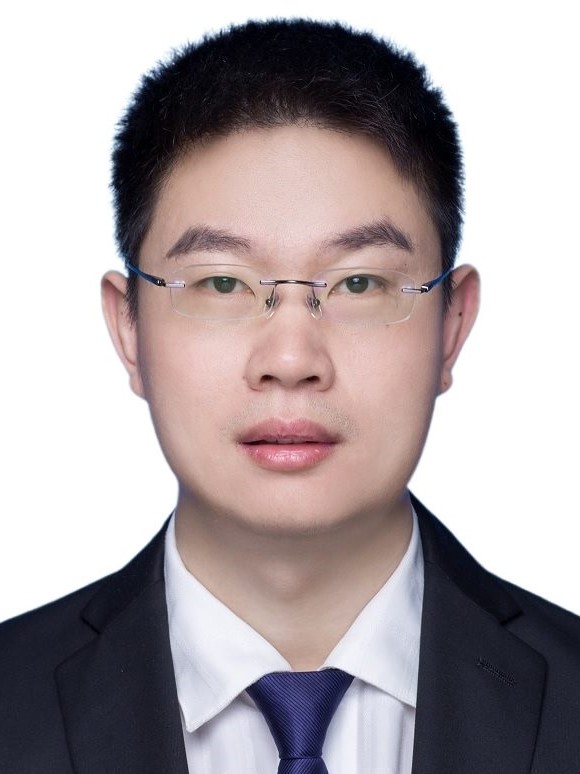
Professor Dongrui Wu
Title: Fuzzy Set and Signal Processing/Machine Learning for Brain-Computer Interface (BCI)
Time: 11:15-11:45
Host: Hai-Tao Zhang
Abstract: Brain computer interfaces (BCIs) have attracted rapidly increasing research interest in the last decade, thanks to recent advances in neurosciences, wearable/mobile biosensors, and analytics. However, there are many challenges in their transition from laboratory settings to real-life applications, including the reliability and convenience of the sensing hardware, the availability of high-performance and robust algorithms for signal analysis and interpretation, and fundamental advances in automated reasoning that effectively handle individual differences and nonstationarity. This talk focuses on the last two challenges for regression problems in BCI. It will show that by combining fuzzy set with signal processing and machine learning approaches, we can significantly improve the regression performance.
Bio:Dongrui Wu received a B.E in Automatic Control from the University of Science and Technology of China, Hefei, China, in 2003, an M.Eng in Electrical and Computer Engineering from the National University of Singapore in 2006, and a PhD in Electrical Engineering from the University of Southern California, Los Angeles, CA, in 2009. He is now Professor and Deputy Director of the Key Laboratory of the Ministry of Education for Image Processing and Intelligent Control, School of Artificial Intelligence and Automation, Huazhong University of Science and Technology, Wuhan, China.
Prof. Wu’s research interests include affective computing, brain-computer interface, computational intelligence, and machine learning. He has more than 160 publications (7000+ Google Scholar citations; h=40), including a book “Perceptual Computing” (Wiley-IEEE Press, 2010), and five US/PCT patents. He received the IEEE Computational Intelligence Society (CIS) Outstanding PhD Dissertation Award in 2012, the IEEE Transactions on Fuzzy Systems Outstanding Paper Award in 2014, the North American Fuzzy Information Processing Society (NAFIPS) Early Career Award in 2014, the IEEE Systems, Man and Cybernetics (SMC) Society Early Career Award in 2017, the IEEE SMC Society Best Associate Editor Award in 2018, the USERN Prize in Formal Sciences in 2020, and the IEEE International Conference on Mechatronics and Automation Best Paper Award in 2020. He was a selected participant of the Heidelberg Laureate Forum in 2013, the US National Academies Keck Futures Initiative (NAKFI) in 2015, and the US National Academy of Engineering German-American Frontiers of Engineering (GAFOE) in 2015. His team won the First Prize of the China Brain-Computer Interface Competition in 2019.
Prof. Wu is an Associate Editor of the IEEE Transactions on Fuzzy Systems (2011-2018; 2020-), the IEEE Transactions on Human-Machine Systems (since 2014), the IEEE Computational Intelligence Magazine (since 2017), and the IEEE Transactions on Neural Systems and Rehabilitation Engineering (since 2019).
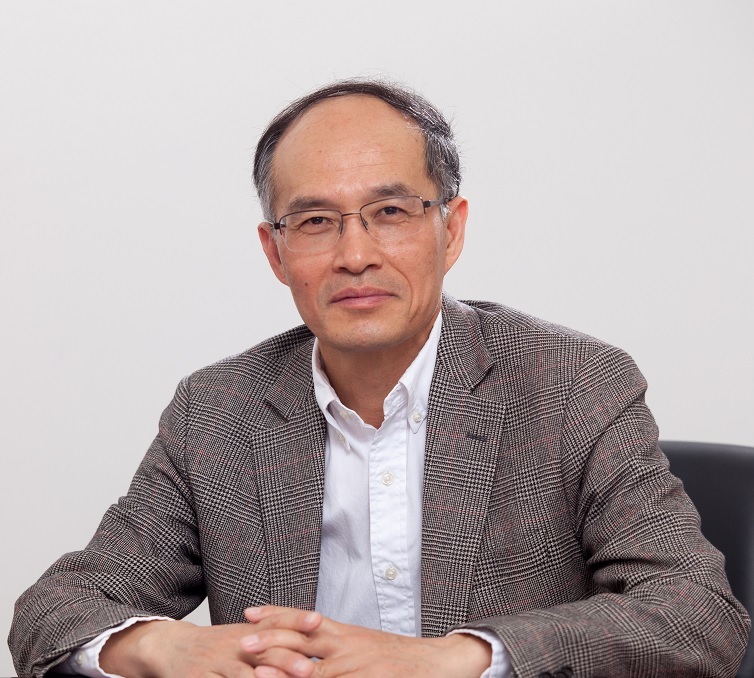
Professor Fei-Yue Wang
Title: The Origin and Goal of CPSS: From AlphaGo to Third Axial Age
Time: 14:00-14:30
Host: Hai-Tao Zhang
Abstract:
Bio:Fei-Yue Wang received the Ph.D. degree in computer and systems engineering from the Rensselaer Polytechnic Institute, Troy, NY, USA, in 1990.
In 1990, he joined The University of Arizona, Tucson, AZ, USA, and then became a Professor and Director of Robotics and Automation Laboratory (RAL) and Program in Advanced Research for Complex Systems (PARCS). In 1999, he founded the Intelligent Control and Systems Engineering Center, Institute of Automation, Chinese Academy of Sciences (CAS), Beijing, China, under the support of the Outstanding Oversea Chinese Talents Program from The State Planning Council and 100 Talent Program from CAS. In 2002, he was appointed as the Director of the Key Laboratory of Complex Systems and Intelligence Science, CAS. In 2011, he became the State Specially Appointed Expert and the Founding Director of the State Key Laboratory for Management and Control of Complex Systems, CAS. His current research interests include methods and applications of parallel systems, parallel intelligence, parallel learning, social computing, and knowledge automation.
Dr. Wang is a Fellow of INCOSE, IFAC, ASME, and AAAS. He was a recipient of the National Prize in Natural Sciences of China and awarded the Outstanding Scientist by ACM for his work in Intelligent Control and Social Computing in 2007, the IEEE ITS Outstanding Application and Research Awards in 2009 and 2011, and the IEEE SMC Norbert Wiener Award in 2014. Since 1997, he has been served as a General or Program Chair of more than 30 IEEE, INFORMS, ACM, ASME Conferences. He was the Founding Editor-in-Chief of the International Journal of Intelligent Control and Systems from 1995 to 2000, the IEEE ITS Magazine from 2006 to 2007, and the IEEE/CAA JOURNAL OF AUTOMATICA SINICA, the IEEE Intelligent Systems from 2009 to 2012, and the IEEE Transactions on ITS from 2009 to 2016. He is currently the Editor-in-Chief of the China Journal of Command and Control and the IEEE Transactions on Computational Social Systems. He was the President of the IEEE ITS Society from 2005 to 2007, Chinese Association for Science and Technology (CAST, USA) in 2005, the American Zhu Kezhen Education Foundation from 2007 to 2008, and the Vice President of the ACM China Council from 2010 to 2011. Since 2008, he has been a Vice President and Secretary General of Chinese Association of Automation.
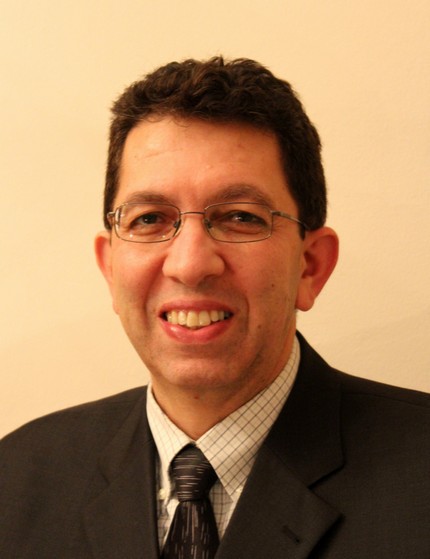
Professor Marios Polycarpou
Title: Intelligent Critical Infrastructure Systems
Time: 14:30-15:00
Host: Dongrui Wu
Abstract: Critical infrastructures, such as electric power systems, water distribution networks, telecommunication networks, and transportation systems, provide the foundation on which communities are built and, when properly functioning, they enable economic growth and social well-being. As urbanization increases, critical infrastructures worldwide are expanding and are becoming more complex, more heterogeneous, more interdependent, and more susceptible to failures, breakdowns and malicious attacks. The problem of monitoring, control, management and security of critical infrastructures systems is becoming increasing more challenging and is an integral part of developing smart cities. This talk is providing an overview of current advances in intelligent critical infrastructure systems and some key tools and design methodologies based on information and communication technologies for making critical infrastructures more efficient, more sustainable and more secure.
Bio:Marios Polycarpou is a Professor of Electrical and Computer Engineering and the Director of the KIOS Research and Innovation Center of Excellence at the University of Cyprus. He received the B.A degree in Computer Science and the B.Sc. in Electrical Engineering, both from Rice University, USA in 1987, and the M.S. and Ph.D. degrees in Electrical Engineering from the University of Southern California, in 1989 and 1992 respectively. His teaching and research interests are in intelligent systems and networks, adaptive and learning control systems, computational intelligence, fault diagnosis and critical infrastructure systems. Dr. Polycarpou has published more than 350 articles in refereed journals, edited books and refereed conference proceedings, and co-authored 7 books. He is also the holder of 6 patents.
Prof. Polycarpou is the recipient of the 2016 IEEE Neural Networks Pioneer Award. He is a Fellow of IEEE and IFAC, and he received with his co-authors the 2014 Best Paper Award for the journal Building and Environment (Elsevier). He served as the President of the IEEE Computational Intelligence Society (2012-2013), as the President of the European Control Association (2017-2019), and as the Editor-in-Chief of the IEEE Transactions on Neural Networks and Learning Systems (2004-2010). Prof. Polycarpou is an Honorary Professor of Imperial College London. He has participated in more than 75 research projects/grants, funded by several agencies and industry in Europe and the United States, including the prestigious European Research Council (ERC) Advanced Grant, the ERC Synergy Grant, and the EU Teaming project. Prof. Polycarpou is an elected Founding Member of the Cyprus Academy of Sciences, Letters, and Arts.

Professor Enrique Herrera-Viedma
Title: Evaluation of Science: Analysis Tools for Evaluating Science
Time: 15:00-15:30
Host: Hai-Tao Zhang
Abstract: In bibliometrics, there are two main procedures to explore a research field: performance analysis and science mapping.Performance analysis aims at evaluating groups of scientific actors (countries, universities, departments, researchers) and the impact of their activity on the basis of bibliographic data. Science mapping aims at displaying the structural and dynamic aspects of scientific research, delimiting a research field, and quantifying and visualizing the detected subfields by means of co-word analysis or documents co-citation analysis. In this talk we present two bibliometric tools that we have developed in our research laboratory SECABA: H-Classics to develop performance analysis by based on Highly Cited Papers and SciMAT to develop science mapping guided by performance bibliometric indicators.
Bio:Enrique Herrera-Viedma is Professor in Computer Science and Artificial Intelligence in University of Granada (UGR) and currently, Vice-President for Research and Knowlegde Transfer. His current research interests include group decision making, consensus models, linguistic modeling, aggregation, information retrieval, bibliometrics, digital libraries, web quality evaluation, recommender systems, blockchain and social media. In these topics he has published more than 300 papers in ISI journals, coordinated more than 25 research projects, and received more than 35.000 citations according to Web of Science, being his h-index 83 and 97 in Google Scholar (see https://scholar.google.com/citations?user=g8ZXTuYAAAAJ&hl=es). Dr. Herrera-Viedma is Vice-President Publications in IEEE SMC Society, IEEE FELLOW and an Associate Editor of international journals such as the IEEE Trans. On Syst. Man, and Cyb.: Systems, IEEE Trans. On Fuzzy Systems, IEEE Trans. On Cybernetics, Knowledge Based Systems, Soft Computing, Fuzzy Optimization and Decision Making, Applied Soft Computing, Journal of Intelligent and Fuzzy Systems, and Information Sciences. He is identified by Clarivate Analytics as HIGHLY CITED RESEARCHER in Computer Science and Engineering from 2014 to 2020 in both categories, “Computer Science” and “Engineering”.
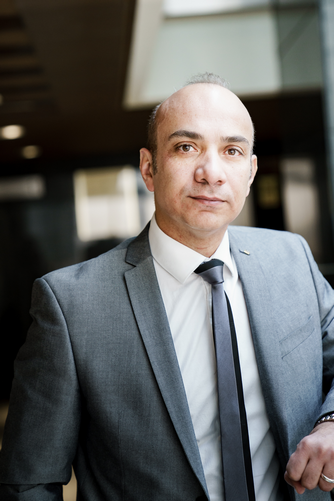
Professor Hani Hagras
Title: Towards Human-Friendly Explainable Artificial Intelligence
Time: 15:30-16:00
Host: Dongrui Wu
Abstract: The recent advances in computing power coupled with the rapid increases in the quantity of available data has led to a resurgence in the theory and applications of Artificial Intelligence (AI). However, the use of complex AI algorithms could result in a lack of transparency to users which is termed as black/opaque box models. Thus, for AI to be trusted and widely used by governments and industries, there is a need for greater transparency through the creation of human friendly explainable AI (XAI) systems. XAI aims to make machines understand the context and environment in which they operate, and over time build underlying explanatory models that allow them to characterize real-world phenomena. The XAI concept provides an explanation of individual decisions, enables understanding of overall strengths and weaknesses, and conveys an understanding of how the system will behave in the future and how to correct the system’s mistakes. In this keynote speech, we introduce the concepts of XAI by moving towards “explainable AI” (XAI) to achieve a significantly positive impact on communities and industries all over the world and we will present novel techniques enabling to deliver human friendly XAI systems which could be easily understood, analysed and augmented by humans. This will allow to the wider deployment of AI systems which are trusted in various real world applications.
Bio: Hani Hagras is a Professor of Explainable Artificial Intelligence, Director of Research and Director of the Computational Intelligence Centre in the University of Essex, UK. He is a Fellow of Institute of Electrical and Electronics Engineers (IEEE), a Fellow of the Institution of Engineering and Technology (IET) and Principal Fellow of the UK Higher Education Academy (PFHEA)
His major research interests are in Explainable Artificial Intelligence, computational intelligence and data science . His research interests also include ambient intelligence, pervasive computing and intelligent buildings. He is also interested in embedded agents, robotics and intelligent control.
He has authored more than 350 papers in international journals, conferences and books. His work has received funding from major research councils and industry. He has also Ten industrial patents in the field of Explainable AI, computational intelligence and intelligent control.
His research has won numerous prestigious international awards where most recently he was awarded by the IEEE Computational Intelligence Society (CIS), the 2013 Outstanding Paper Award in the IEEE Transactions on Fuzzy Systems and also he has won the 2004 Outstanding Paper Award in the IEEE Transactions on Fuzzy Systems. He was also awarded the 2015 and 2017 Global Telecommunications Business award for his joint project with British Telecom. In 2016, he was elected as Distinguished Lecturer by the IEEE Computational Intelligence Society. He was also the Chair of the IEEE CIS Chapter that won the 2011 IEEE CIS Outstanding Chapter award. His work with IP4 Ltd has won the 2009 Lord Stafford Award for Achievement in Innovation for East of England. His work has also won the 2011 Best Knowledge Transfer Partnership Project for London and the Eastern Region. His work has also won best paper awards in several conferences including the 2014 and 2006 IEEE International Conference on Fuzzy Systems and the 2012 UK Workshop on Computational Intelligence.
He is an Associate Editor of the IEEE Transactions on Fuzzy Systems. He is also an Associate Editor of the International Journal of Robotics and Automation.
Prof. Hagras chaired several international conferences where he will act as the Programme Chair of the 2021 IEEE International Conference on Fuzzy Systems and he served as the programme chair of the 2017 IEEE International Conference on Fuzzy Systems. He served as the Co-Chair of the 2014, 2013, 2011 and 2009 IEEE Symposium on Intelligent Agents, and the 2011 IEEE International Symposium on Advances to Type-2 Fuzzy Logic Systems. He was also the General Co-Chair of the 2007 IEEE International Conference on Fuzzy systems.
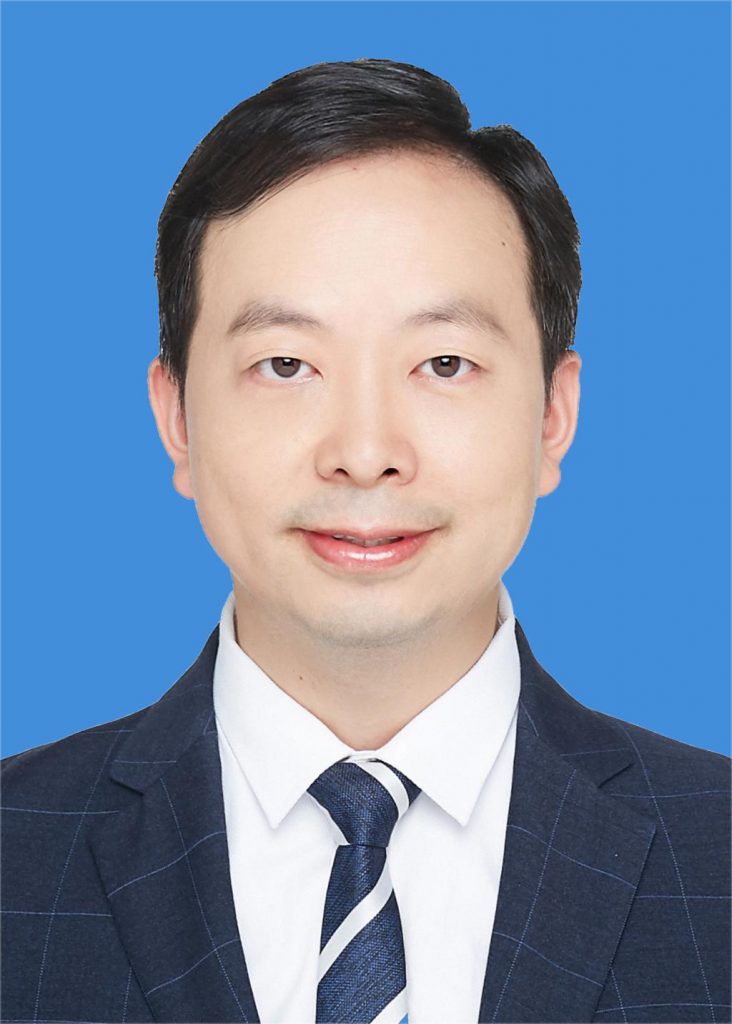
Professor Hai-Tao Zhang
Title: From Swarm Intelligence to Autonomous Unmanned Surface Vessel Formation Coordination
Time: 16:00-16:30
Host: Dongrui Wu
Abstract: An integrated equipment for bio-swarming intelligence inspired coordination control of multiple USVs. Therein, four types of functional units are organically integrated including autonomous environmental perception, navigation, obstacle-avoidance, and formation control. Such a multi-USV equipment has the capabilities of surrounding identification, autonomous navigation and online path planning, formation regulation. This equipment autonomously accomplishes collaborative missions such as deployment, patrolling, hunting, reconnaissance, mapping, rescue, and supplies delivery. It has been widely used in quite a few areas such as aquatic oil and gas resource explorations, cross-sea channel monitoring, water pollution control and fishery resources detection in Chinese Great Bay area.
Bio:Hai-Tao Zhang was born in 1977. He received B.E. and Ph.D. degrees from the University of Science and Technology of China, Hefei, China, in 2000 and 2005, respectively. Since 2005, he has been with the School of Artificial Intelligence and Automation, Huazhong University of Science and Technology (HUST), where he was an Associate Professor from 2005 till 2010 and afterwards a Professor from late 2010 till now.
He worked as a Postdoctoral Scholar at the University of Cambridge, 2006-2007, and as a Visiting Scholar at the University of Cambridge during July-September 2008. From Feb 2014 till Feb. 2015, he worked as a visiting professor in ECE Department, University of Virginia. From 2013 till 2018, he serves as the deputy head of the Key Lab of Imaging Processing and Intelligent Control, Chinese Ministry of Education. From 2018 till now, he serves as the deputy dean of School of Artificial Intelligence and Automation, HUST. He has authored/coauthored three books, of which two were published in Springer Press. He has published 97 SCI-indexed journal papers as well, including 1 Nature Machine Intelligence, 1 Nature Communications, 1National Science Review , 3 Automatica, and 44 IEEE Transactions/Magazine papers. His swarming intelligence study has been selected as a Research Highlight work of Nature.Physics in 2016. Besides, he has gained grants of 26 invention patents of China. He has been invited by the president of American Academy of Science to give a plenary speech at Chinese-American Kavli Frontiers of Science Symposium, Irvine, CA, 2012. He has been invited to give speeches at MIT, Univ. Cambridge, Univ. Boston, Univ. Virginia, UC-riverside, etc, as well.
His research interests include swarming intelligence, collaboration of unmanned surface vessels and collaborative manufacturing of multi-robot systems. He was the PI of five projects of National Natural Science Foundation of China, including one Excellent Youth Project and one key Project. He is a Cheung Kong Young Scholar of Chinese Ministry of Education. He has been elected into National Youth Outstanding Talent Support Program of China. He has won the First Class Natural Science Award (1/3) 2015, Hubei Province, P.R.China, Chinese Outstanding Young Scientist Award 2013, and Gold Medal(1/8) of Geneva Inventions 2018.
He is an IEEE Senior Member, the Chair of IEEE CSS Wuhan Chapter and an Associate Editor for IEEE Transactions on Systems, Man and Cybernetics-Systems(2019-), IEEE Trans. Circuits and Systems II (2016-2019), Asian Journal of Control (2013-) and IEEE Control Systems Society Editorial Board (2014-). He serves as an Associate Editor of two leading control conferences IEEE CDC and ACC.

